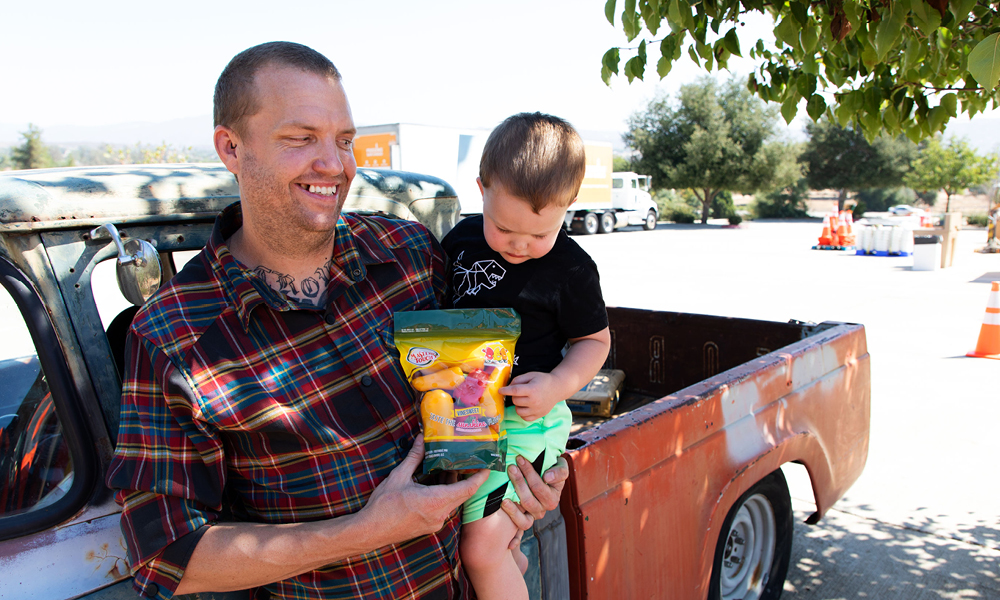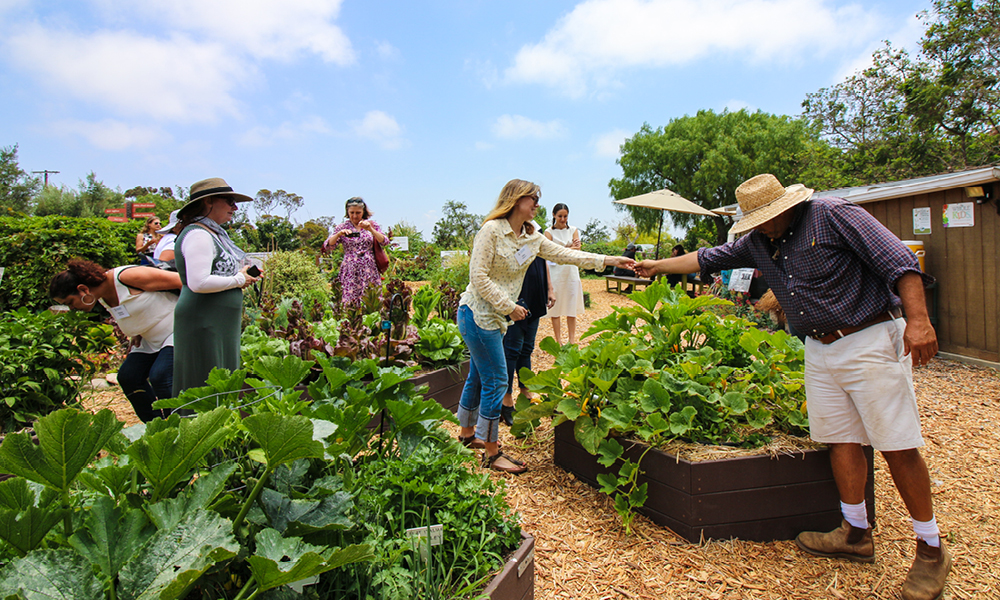Years ago, I helped a local women’s addiction recovery program establish a community garden. Through this effort, I learned about the health, environment and community benefits of locally sourced food. I remember being fascinated by the Slow Food movement and burned through many books on the topic from authors such as Michael Pollen, Carlo Petrini and Barbara Kingsolver.
Now in the context of climate change, supporting our local food system is even more critical. San Diego is well-positioned to take action and invest in the local food community and economy.
San Diego County boasts the largest number of farms of any county in the country, a diverse restaurant and retail industry, and 217,000-plus San Diegans employed in the food system – the equivalent of over 15 percent of all jobs in the County. Locally produced food reflects our region’s racial and ethnic diversity and supports improved nutrition and access to healthy food while annually contributing over $1.8 billion in agricultural and seafood sales to our economy.
But our food system faces multiple environmental, economic and equity challenges. Climate change impacts such as rising temperatures, drought and wildfires impact agricultural production across our county. Climate change and extreme weather patterns affect the livelihood of farmers, fishers, residents, food industry workers and business owners. San Diego County’s agriculture sector is shrinking as a result of declining agricultural lands, water scarcity, increasing costs of water, limited business and technical support services, and rising inequality.
As estimated by the San Diego Hunger Coalition, approximately 28% of San Diegans were experiencing nutrition insecurity as of March 2022. Black, Indigenous and people of color have been disproportionately impacted, and nutrition insecurity remains highest among communities of color who experience limited access to healthy food and limited agency over their food environment. Unfortunately, these are the same communities that are often also considered frontline communities or those that experience the most immediate and worst impacts of climate change.
Conversely, food systems are the largest contributor to climate change at one-third of greenhouse gases globally. The largest contribution (71%) came from agriculture and land use/land-use change activities, with the remaining from supply chain activities: retail, transport, consumption, fuel production, waste management, industrial processes and packaging.
In May, San Diego Foundation and the County of San Diego granted $5,563,500 to 43 community-based organizations to help San Diegans experiencing food insecurity by supporting localized, sustainable food production and distribution. These Community Food Grant Program projects provide regional and population-specific services to food-insecure seniors, students, Tribal communities, unsheltered residents, and refugees and immigrants.
Re-orienting our region toward a community-rooted food system is essential in addressing rising climate change impacts to ensure just, equitable and resilient communities. Every dollar spent supporting our local food economy makes a difference that has a ripple effect toward a better quality of life and a more resilient and healthier San Diego. Learn more about the food program grantees here.





